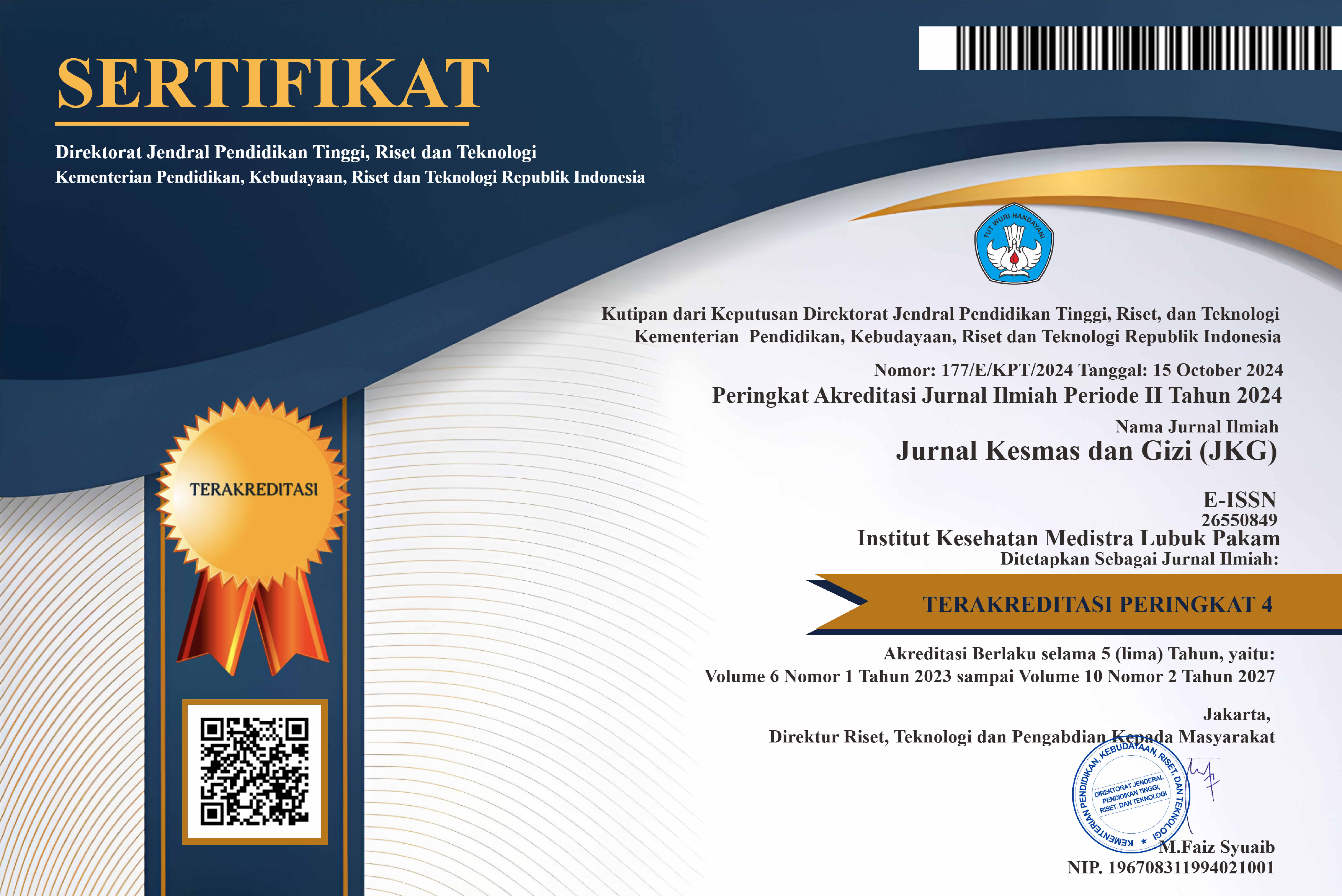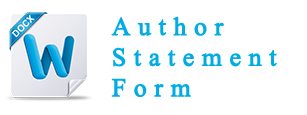Association Between the Managerial Capacity of Nutrition Personnel and the Achievement of Specific Nutrition Interventions for Stunting Prevention
DOI:
https://doi.org/10.35451/298hcw76Keywords:
Managerial Capacity, Nutrition Personnel, Nutrition Intervention, Stunting, Primary Health CenterAbstract
Background: Stunting remains a serious public health issue in Indonesia, with a prevalence rate of 24.4% according to SSGI 2021. Specific nutrition interventions require strong managerial capacity among nutrition personnel. Objective: This study aimed to analyze the relationship between the managerial capacity of nutrition personnel and the achievement of specific nutrition interventions at community health centers (puskesmas) in Deli Serdang Regency. Research Methods: This was a quantitative study with a cross-sectional design. A total of 41 nutrition personnel were selected using proportional random sampling. Data were collected through structured questionnaires and reports on specific nutrition interventions, and analyzed using chi-square tests with a significance level of p<0.05. Results: Most nutrition personnel (63.4%) demonstrated good managerial capacity, and 68.3% achieved high outcomes in specific nutrition interventions. Statistical analysis showed a significant relationship between managerial capacity and intervention achievement (p=0.001), where those with better managerial skills achieved higher intervention targets.Conclusion: Managerial capacity significantly influences the achievement of specific nutrition interventions for stunting prevention. Strengthening managerial skills through continuous training is essential to enhance the effectiveness of nutrition programs at the primary healthcare level.
Downloads
References
Kementerian Kesehatan Republik Indonesia. Laporan Survei Status Gizi Indonesia (SSGI) 2021. Jakarta: Kementerian Kesehatan RI; 2021.
World Health Organization. Stunting in Children: A Global Perspective. Geneva: World Health Organization; 2021.
Ministry of Health Republic of Indonesia. Pedoman Penanggulangan Stunting di Indonesia. Jakarta: Kementerian Kesehatan RI; 2021.
Astuti, N., Wulandari, A. Manajerial Kesehatan dalam Program Gizi: Tantangan dan Peluang. Jurnal Kesehatan Masyarakat. 16(2), 204-211. 2021.
Badan Penelitian dan Pengembangan Kesehatan. Laporan Hasil Survei Kesehatan Rumah Tangga Indonesia (SKRT) 2021. Jakarta: Kemenkes RI; 2021.
Abdurrahman, A. Kapasitas Manajerial Tenaga Kesehatan dan Pengaruhnya terhadap Pencapaian Program Kesehatan. Jurnal Manajemen Kesehatan. 13(1), 88-95. 2021.
Hidayat, R. Analisis Faktor Sosial Ekonomi dalam Pengaruhnya terhadap Penanggulangan Stunting di Puskesmas. Jurnal Kesehatan Masyarakat Indonesia. 29(1), 45-53. 2021.
Bass, B. M. (1985). Leadership and Performance Beyond Expectations. Free Press.
Bass, B. M. (1985). Leadership and Performance Beyond Expectations. Free Press.
Blake, R. R., & Mouton, J. S. (1964). The Managerial Grid: The Key to Leadership Excellence. Gulf Publishing Company.
Simon, H. A. (1960). The New Science of Management Decision. Harper & Row.
Carver, C. S., & Scheier, M. F. (1982). Control theory: A useful conceptual framework for personality-social, clinical, and health psychology. Psychological Bulletin, 92(1), 111-135.
Barney, J. B. (1991). Firm Resources and Sustained Competitive Advantage. Journal of Management, 17(1), 99-120.
Dewi, R. L., Handayani, D., & Kusuma, W. (2020). Pengaruh pengalaman kerja terhadap keterampilan manajerial tenaga kesehatan. Jurnal Manajemen Kesehatan, 6(1), 45-53.
Dube, L., & Beasley, M. (2014). The Role of Managerial Skills in Improving Healthcare Delivery. Journal of Healthcare Management, 59(2), 112-120.
Santosa, M., Susilowati, P., & Arifin, Z. (2021). Hubungan kapasitas manajerial dan keberhasilan pelaksanaan program gizi di puskesmas. Jurnal Manajemen Kesehatan, 6(1), 45-53.
Bass, B. M. (1985). Transformational Leadership: Industrial, Military, and Educational Impact. Mahwah, NJ: Lawrence Erlbaum Associates.
Blake, R. R., & Mouton, J. S. (1964). The Managerial Grid: The Key to Leadership Excellence. Houston, TX: Gulf Publishing.
Dewi, R., Sari, D. R., & Maharani, R. (2020). Kapasitas Manajerial dan Pengelolaan Program Gizi: Studi Kasus di Puskesmas X. Jurnal Gizi dan Kesehatan Masyarakat, 15(2), 143-150.
Simon, H. A. (1960). The New Science of Management Decision. Harper & Row.
Barney, J. B. (1991). Firm Resources and Sustained Competitive Advantage. Journal of Management, 17(1), 99-120.
Dube, J., & Beasley, M. (2014). Evaluasi Program Gizi: Praktik dan Teori. Jurnal Manajemen Kesehatan, 7(3), 102-110.
Santosa, A., Hidayati, T., & Wulandari, E. (2021). Peningkatan Kapasitas Manajerial Tenaga Gizi Melalui Pelatihan: Dampaknya Terhadap Capaian Program Gizi. Jurnal Pelatihan Kesehatan, 8(4), 58-65.
Carver, C. S., & Scheier, M. F. (1982). Control Theory: A Critical Review. Psychological Bulletin, 92(1), 111-129.
Downloads
Published
Issue
Section
License
Copyright (c) 2025 Harris Rambey

This work is licensed under a Creative Commons Attribution 4.0 International License.
Copyright in each article is the property of the Author.



























